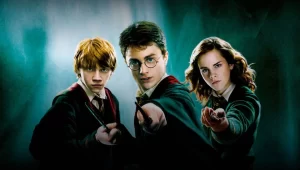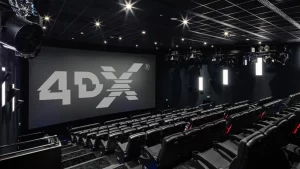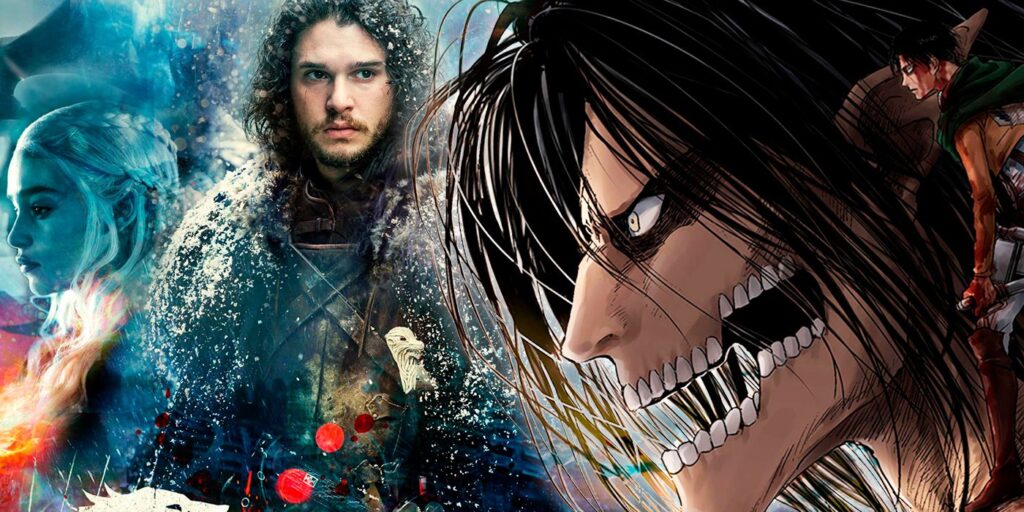
Anime has become a pop culture phenomenon, spreading across the globe like wildfire. Honestly, before watching Attack on Titan, I had a very different idea of anime. To me, it was either chaotic battle-centric adventures, jolly cartoonish fun, or high-school teenage dramas. But Attack on Titan turned out to be an exceptional portrayal of real-life struggles, war, perception, and moral dilemmas wrapped in a gripping fantasy world. This is precisely what Game of Thrones did for the live-action fantasy genre. Let’s dive deeper into why Attack on Titan is often considered the Game of Thrones of anime.
Both Are Dark Fantasy

Dark fantasy is a genre that blends fantastical elements with grim, often horrific themes. It’s not about escapism but confrontation — with human nature, with the unknown, and with despair. Both Attack on Titan and Game of Thrones excel at this. They explore the horrors of their respective worlds: the looming terror of Titans outside the walls, and the relentless game of political and physical survival in Westeros. Despite their fantasy elements, the narratives often strip away hope and comfort, immersing viewers in visceral, heart-wrenching tales of loss, fear, and moral compromise.
What sets these works apart is their ability to maintain a grounded realism within their dark fantasy settings. The terror of the Titans or the White Walkers mirrors humanity’s fear of the uncontrollable, of the unknown forces that can upend life as we know it.
A Reflection of the Real World
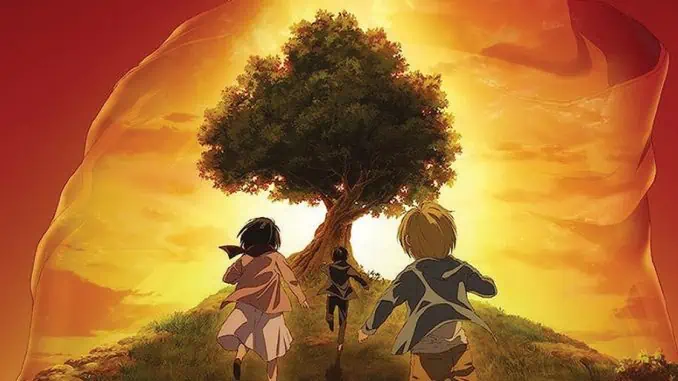
Both series symbolize real-world conflicts and the bloody history of humanity. They hold up a mirror to human struggles: war, oppression, and the ultimate desire for survival. In both stories, justice often takes a backseat to power, and the weak suffer as pawns in a larger game.
Attack on Titan draws heavily on themes of oppression and warfare, reflecting a cycle of violence and vengeance that feels all too familiar. The Marleyans’ oppression of the Eldians is a chilling reminder of historical and ongoing injustices in the real world. Similarly, Game of Thrones paints a picture of a feudal world where human life is expendable. The Red Wedding and the fall of Shiganshina District are emblematic of the collateral damage inflicted in pursuit of power or survival.
Both series ask us to confront a hard truth: in dark times, human life often isn’t valued, and survival becomes the highest virtue. It’s a grim but poignant reminder of the fragility of peace.
Morally Complex Characters of Attack on Titan
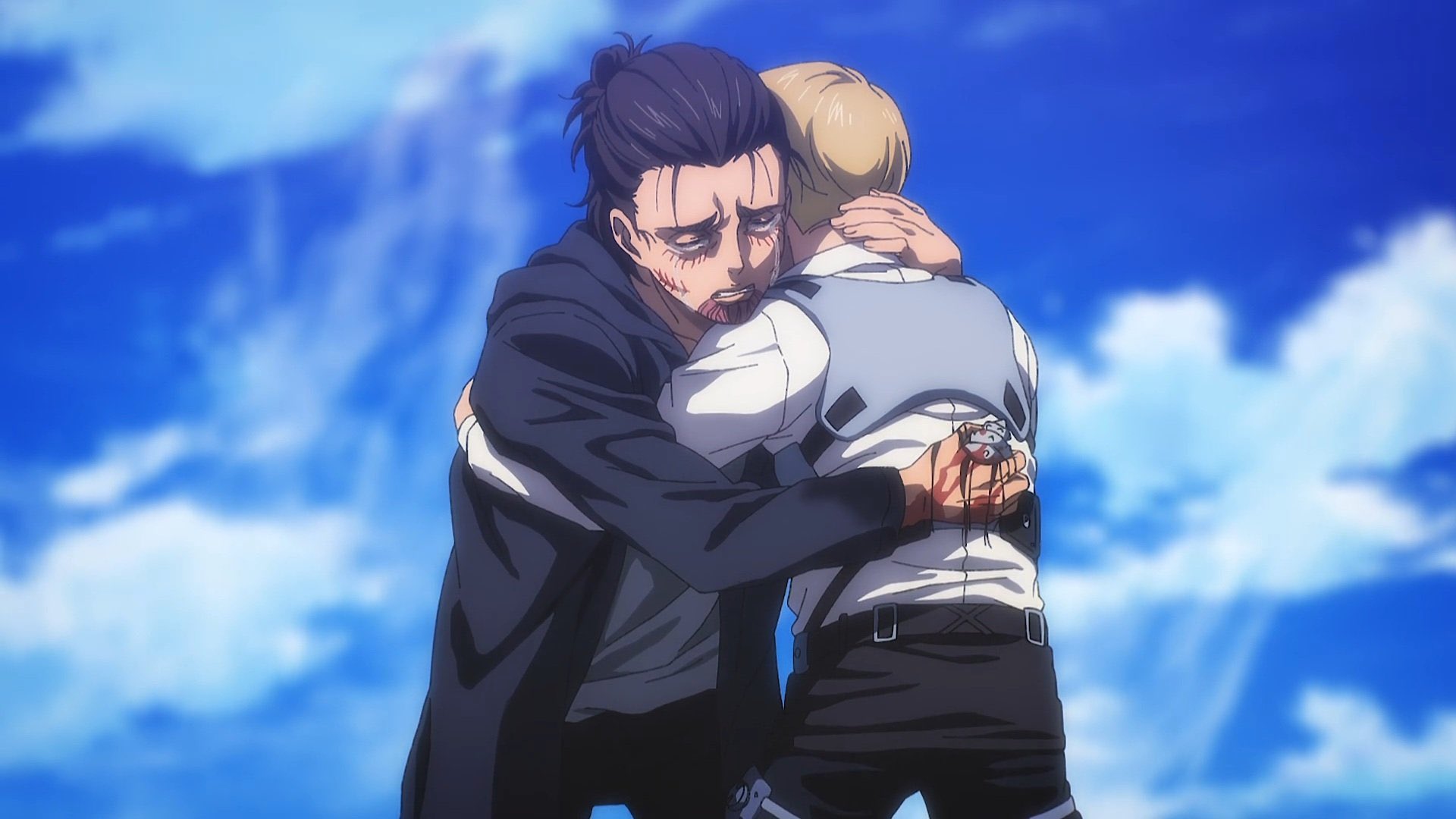
One of the most striking similarities is the depth of character development and the moral ambiguity of their key players. Neither series is content with simplistic heroes or villains. Instead, we’re given morally grey characters who evolve dramatically over time. Think of Eren Yeager, whose journey from a fiery, vengeance-driven boy to a figure of terrifying determination mirrors the rise and fall of Daenerys Targaryen. Both start as symbols of hope but become something far more complex and divisive.
And then there are redemptions and damnations: Zeke Yeager’s convoluted journey of betrayal and sacrifice mirrors Jaime Lannister’s arc in many ways. Even the few white-knight characters, like Armin Arlert or Jon Snow, struggle immensely with their roles and decisions. In both stories, purity is scarce, and when it does appear, it’s often challenged by the harshness of their worlds.
The Wall and The Scouts (Basically Night’s Watch)
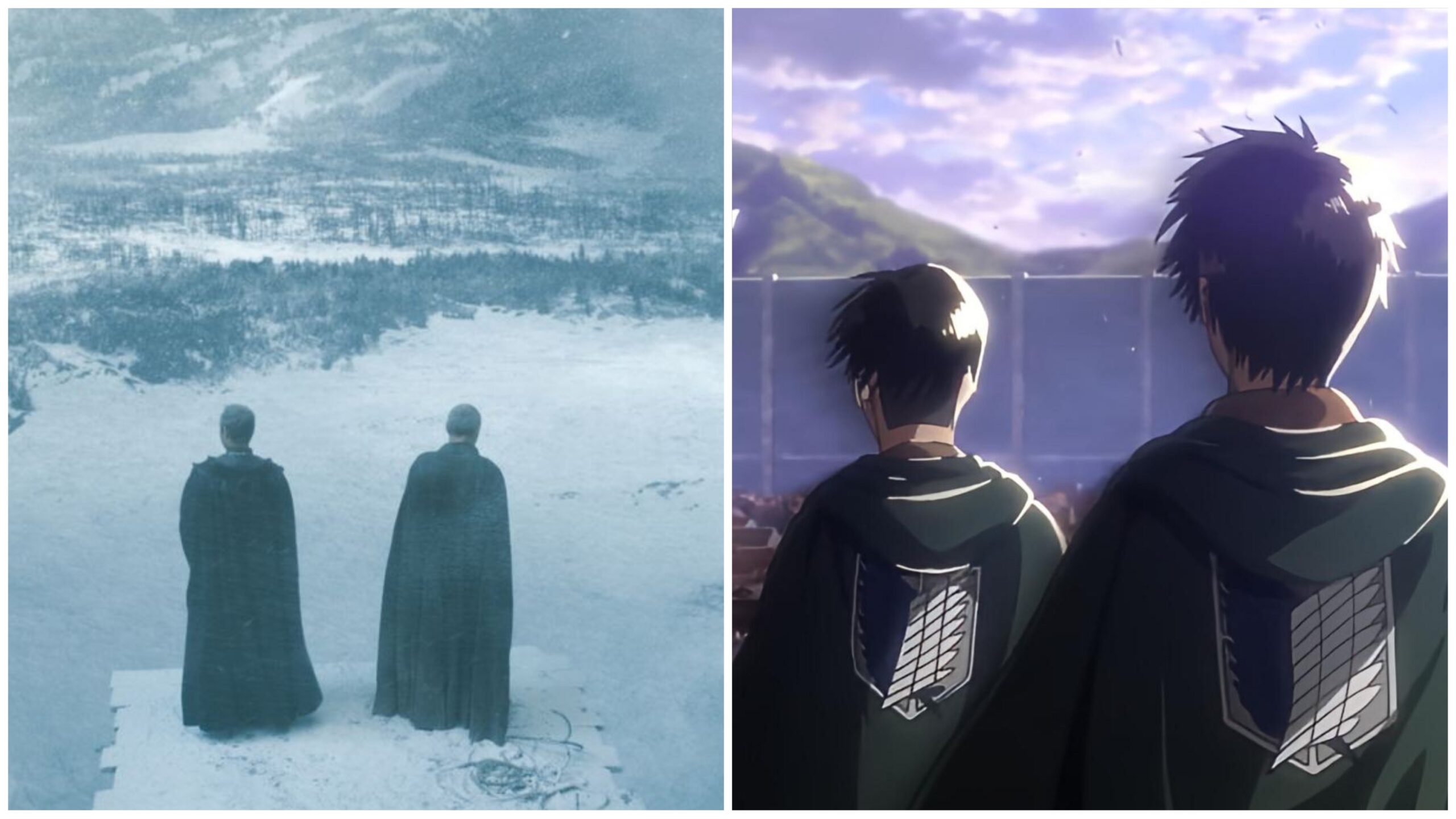
The parallels between the Survey Corps and the Night’s Watch are undeniable. Both groups are humanity’s first line of defense against a near-unstoppable enemy. The walls separating humanity from Titans in Attack on Titan and the Wall in Game of Thrones serve as grim symbols of isolation, fear, and resilience. Both organizations demand immense sacrifices from their members, often sending them on suicidal missions in the name of humanity’s survival.
The scouts, much like the Night’s Watch, are unsung heroes. They’re viewed with suspicion or disdain by the general populace but are crucial to the survival of their respective worlds.
Attack on Titan Too Has Monsters, Magic, and Lore

Both series thrive on intricate world-building. The Titans and White Walkers serve as the monstrous embodiments of existential threats, while the lore surrounding them deepens the mystery. The history of the Eldians and Marleyans is as layered and complex as the Targaryen dynasty or the origin of the White Walkers. Each series uses its monsters not just as physical threats but as symbols of humanity’s deeper fears and flaws.
Twists and Deaths in Attack of Titan
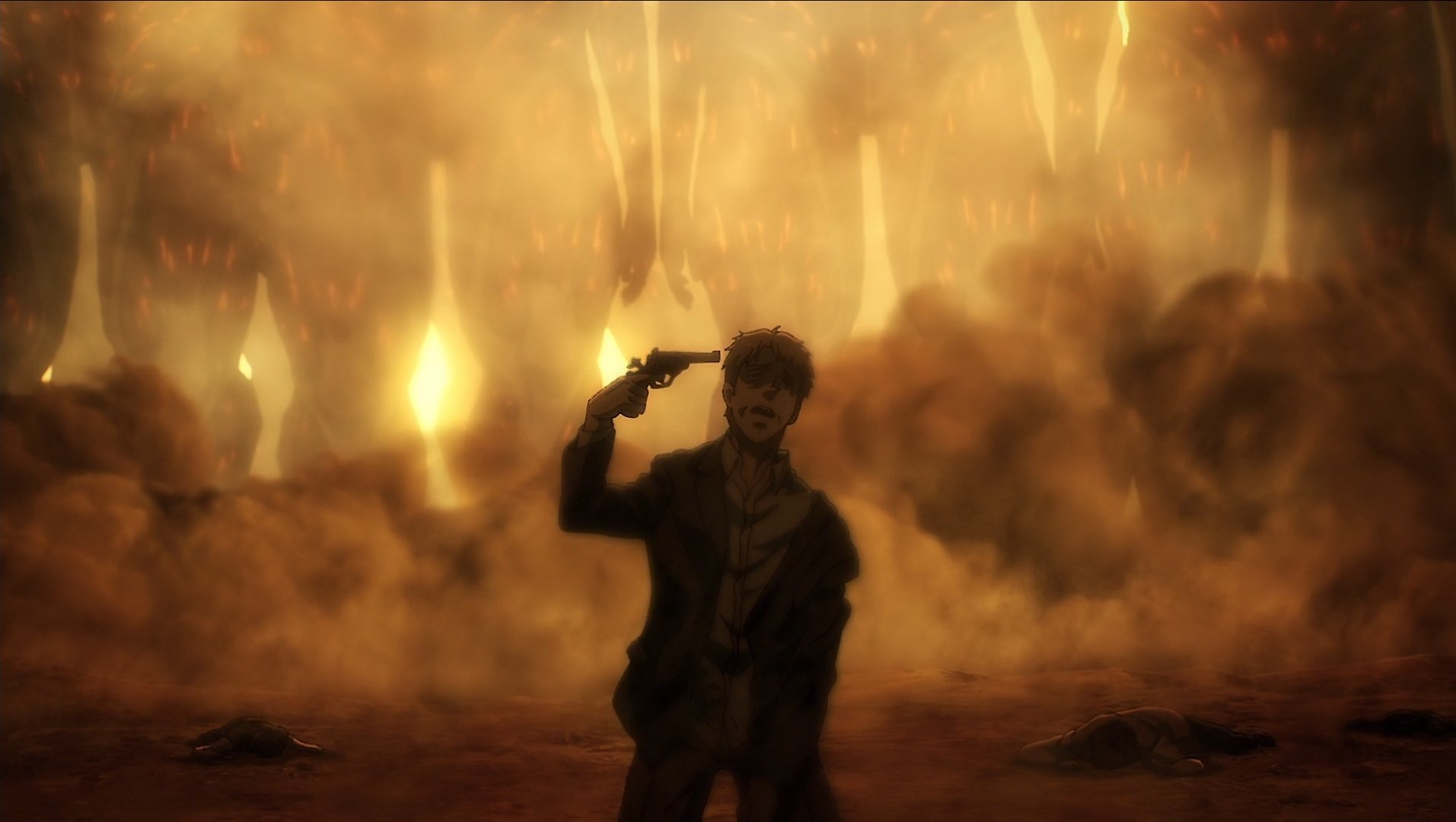
If there’s one piece of advice for new viewers, it’s this: don’t get too attached to anyone. Both Attack on Titan and Game of Thrones are infamous for their twists and the brutal deaths of beloved characters. The deaths of Hannes or Marco in Attack on Titan evoke the same shock and despair as the executions of Ned Stark or Robb Stark in Game of Thrones. These twists keep viewers on edge, constantly questioning the stability of the story and the safety of its characters.
The Threat of the World’s End
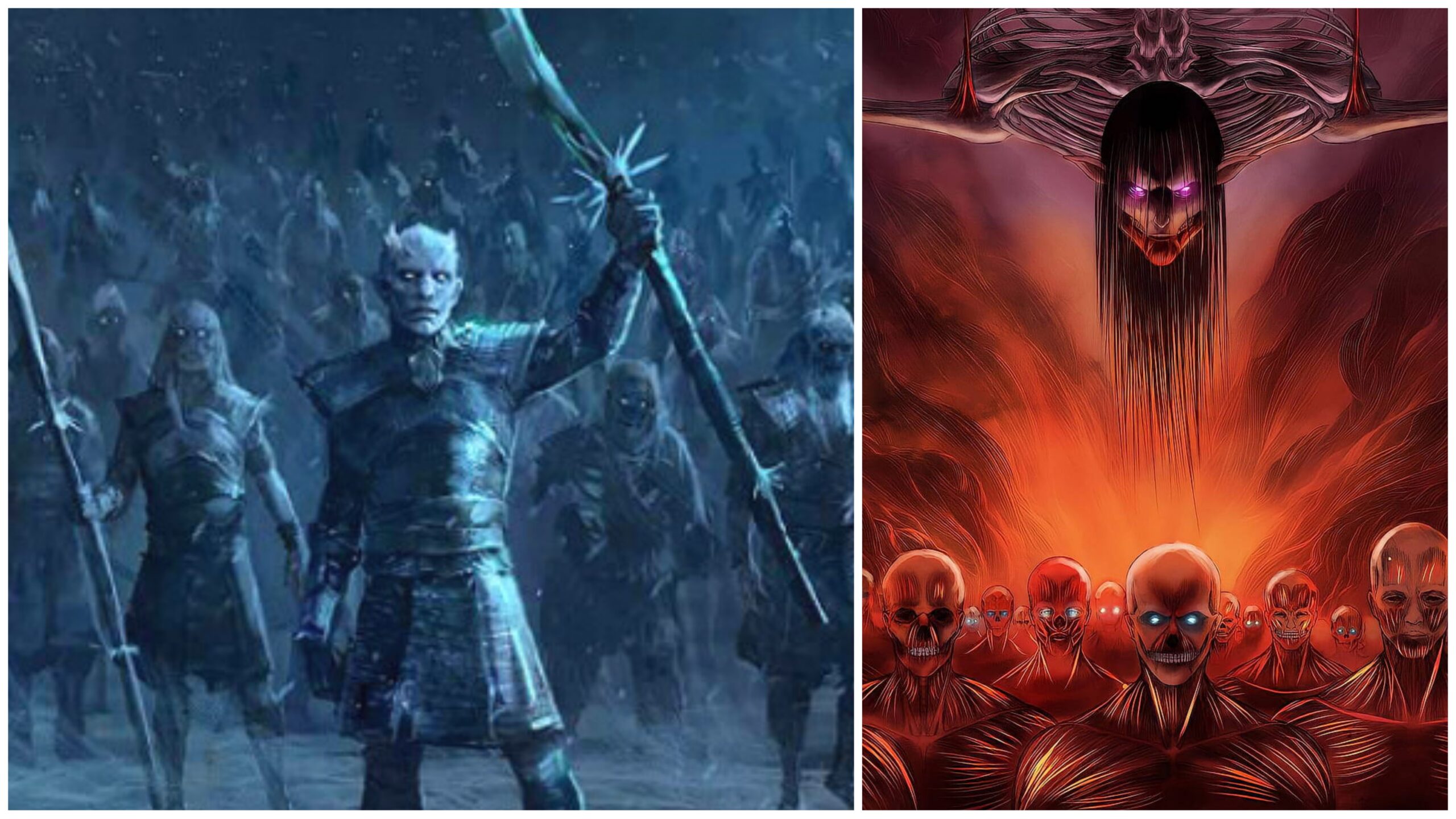
At their core, both series are about the end of the world as their characters know it. In Attack on Titan, the Rumbling is an apocalyptic threat that looms over humanity. Similarly, Game of Thrones builds toward the existential danger of the White Walkers and their quest to obliterate life. Yet, both series balance these grand threats with internal conflicts, from political power struggles to ideological divides, creating a rich and layered narrative.
Attack on Titan is As Violent and Gory
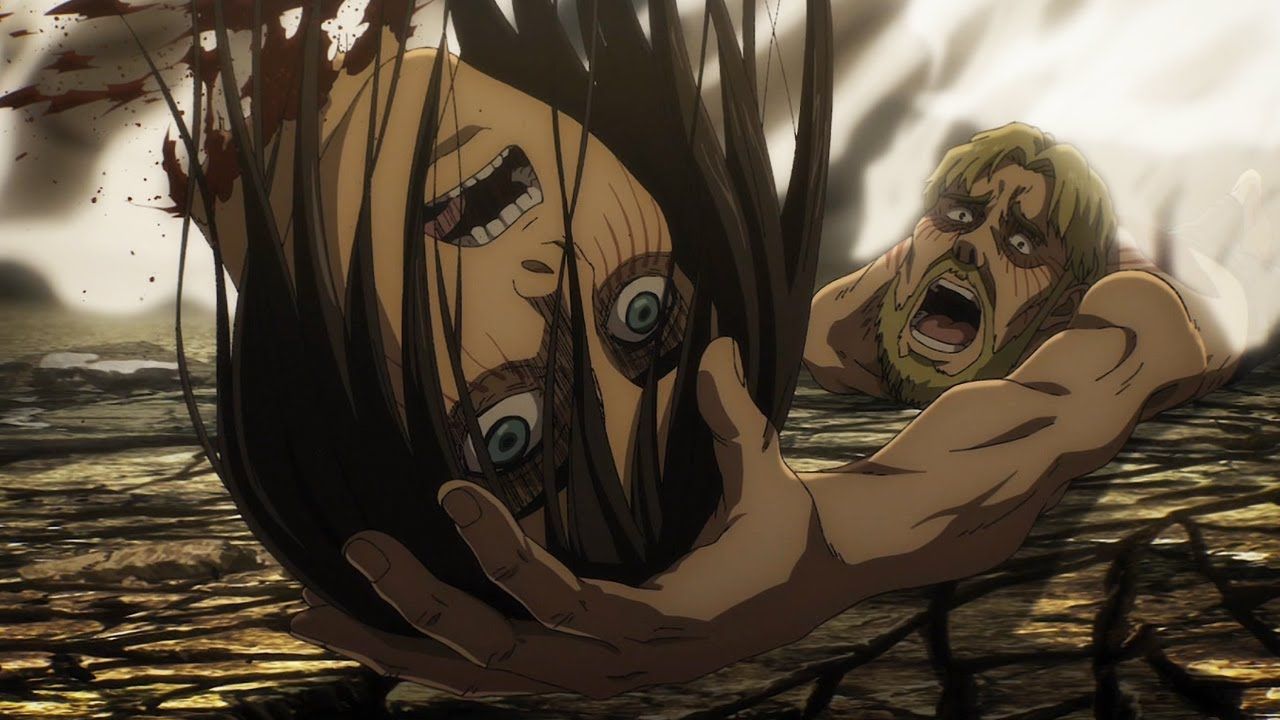
Neither series shies away from showing the brutality of their worlds. The visceral violence in Attack on Titan, from Titan attacks to brutal battles, is as shocking as the gore of Game of Thrones. These moments aren’t just for shock value; they underline the stakes and the grim realities of survival in such unforgiving settings.
Conclusion – Attack on Titan and Game of Thrones have redefined their respective mediums by elevating the dark fantasy genre. They challenge viewers to confront difficult truths about humanity, morality, and survival while delivering gripping narratives filled with twists, rich lore, and unforgettable characters. Both stories remind us that even in the darkest times, the human spirit endures, driven by the hope of a better tomorrow — no matter how fleeting it may be. If you haven’t experienced them yet, brace yourself for a journey that will leave you questioning the very fabric of right, wrong, and what it means to be human.
If you have any questions regarding Attack on Titan or Game of Thrones, feel free to ask in the comments below. For more content, stay tuned. As usual, like, subscribe and share our articles as we here are trying to build a community of people High on Cinema!



